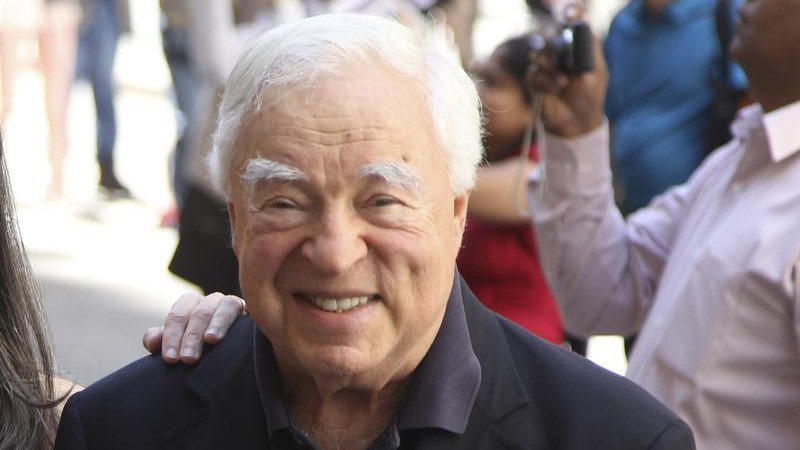Arthur Frommer — whose guidebooks revolutionised leisure travel — dies at 95
Travel writer Arthur Frommer, who revolutionised leisure travel for ordinary Americans with his guidebook Europe on 5 Dollars a Day, has died.

Arthur Frommer, whose guidebooks revolutionised leisure travel by convincing average Americans to take budget vacations abroad, has died. He was 95.
Frommer died from complications of pneumonia, his daughter Pauline Frommer said.
“My father opened up the world to so many people,” she said. “He believed deeply that travel could be an enlightening activity and one that did not require a big budget.”
Sign up to The Nightly's newsletters.
Get the first look at the digital newspaper, curated daily stories and breaking headlines delivered to your inbox.
By continuing you agree to our Terms and Privacy Policy.Frommer began writing about travel while serving in the US Army in Europe in the 1950s. When a guidebook he wrote for American soldiers overseas sold out, he launched what became one of the travel industry’s best-known brands, self-publishing Europe on 5 Dollars a Day in 1957.
“It struck a chord and became an immediate best-seller,” he recalled in an interview with The Associated Press in 2007, on the 50th anniversary of the book’s debut.
The Frommer’s brand, led today by his daughter Pauline, remains one of the best-known names in the travel industry, with guidebooks to destinations around the world, an influential social media presence, podcasts and a radio show.
Frommer’s philosophy: stay in inns and budget hotels instead of five-star hotels, sight see on your own using public transportation, eat with locals in small cafes instead of fancy restaurants.
He said budget travel was preferable to luxury travel “because it leads to a more authentic experience.” That message encouraged average people, not just the wealthy, to vacation abroad.
The books became so popular that there was a time when you couldn’t visit a place like the Eiffel Tower without spotting Frommer’s guidebooks in the hands of every other American tourist.
Frommer’s advice also became so standard that it’s hard to remember how radical it seemed in the days before discount flights and backpacks.
“It was really pioneering stuff,” Tony Wheeler, founder of the Lonely Planet guidebook company, said in an interview in 2013.
Before Frommer, Wheeler said, you could find guidebooks “that would tell you everything about the church or the temple ruin. But the idea that you wanted to eat somewhere and find a hotel or get from A to B - well, I’ve got a huge amount of respect for Arthur.”
Asked to summarise the impact of his books in a 2017 AP interview, Frommer said that in the 1950s, “most Americans had been taught that foreign travel was a once-in-a-lifetime experience, especially travel to Europe. They were taught that they were going to a war-torn country where it was risky to stay in any hotel other than a five-star hotel. It was risky to go into anything but a top-notch restaurant. … And I knew that all these warnings were a lot of nonsense.”
